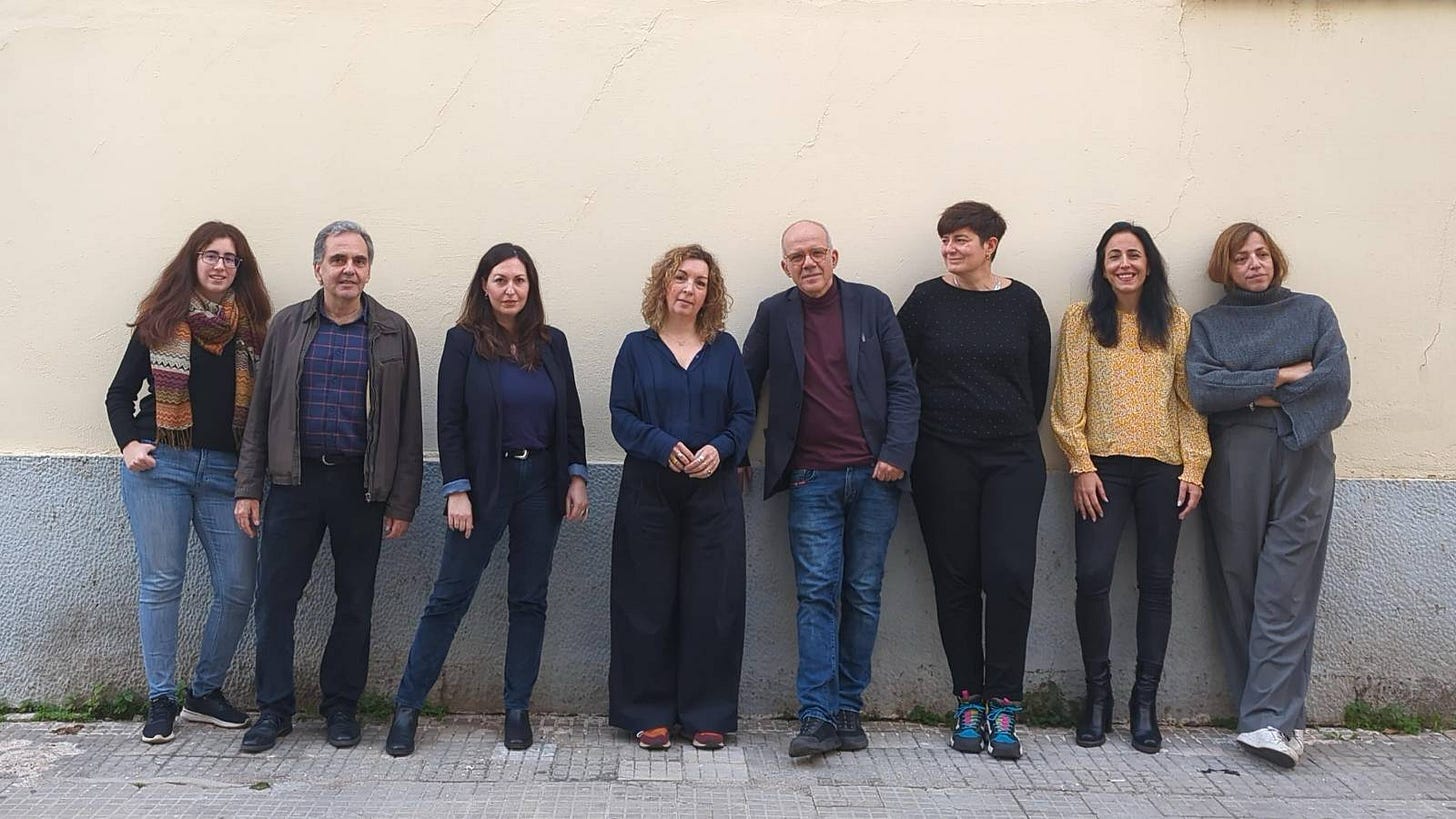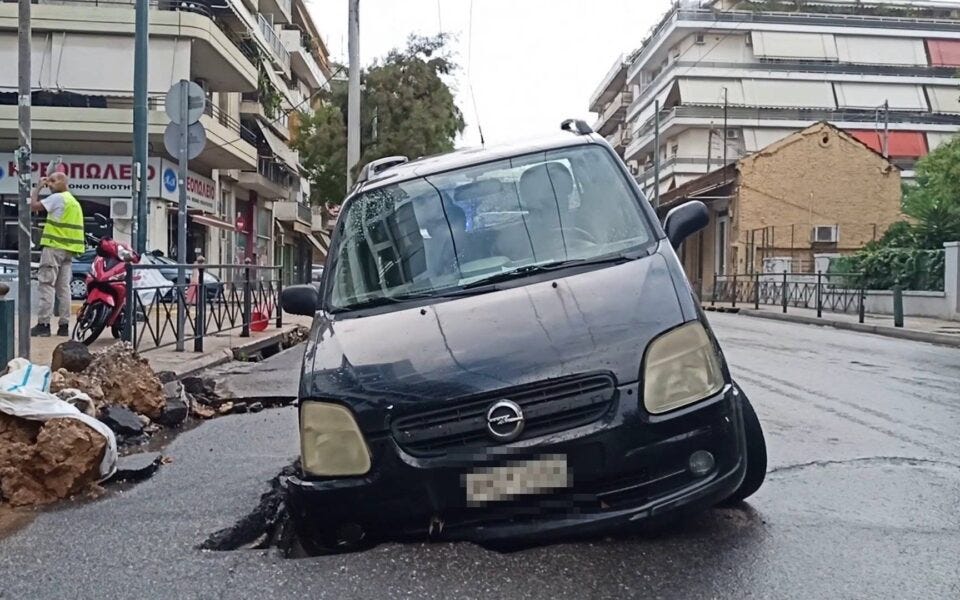Early September has always been a little unnerving to me. I’m not very comfortable with the summer lull that puts every project on hold and the “relax when everyone else is relaxing” or “party when everyone else is partying” philosophy (New Years Eve is another great example of this type of social pressure), so I feel better when I life goes back to normal. But I’m also a summer person and I’m always seduced by its promises, so when it ends, I get nostalgic. Enter the school bell, one of the most anxiety inducing sounds on the planet, and you get a perfect mix of conflicting emotions to start the month with.
Reading the news and staying connected with reality is what grounds me. It’s why I chose this profession. It’s why writing this newsletter is so rewarding (as well as the awesome community of around 330 people who have subscribed, many of whom are sending thoughts and feedback after every edition).
***
I promised last week that I would start introducing you to the Greek independent media. So, you’ll ask, what’s “independent”? We can all say we’re independent, right? Well, yes, but in the case of independent media, it refers both to being free of any political or commercial influences, and also being transparent with where they’re getting their funding from. So it’s not just saying it - it’s also about proving it.
The first newsroom I want to introduce you to in Greece is Inside Story.
It’s a team of about 13 people, who publish on a variety of issues, but tend to focus on the environment, both regarding the effect of tourism but increasingly on water management in times of climate crisis, and investigations on corruption, in both a domestic and an international context. They’ve recently become members of the international investigative journalism organization OCCRP and they played a crucial part in the unraveling of the wiretapping scandal that I explained more about a few weeks ago.
Last, but not least, they’re great people (they’ve welcomed me into their office when I first moved to Greece, so we got to spend some time together), doing great work. Their funding comes mostly from readers, so they could always use some support through subscriptions.
From left to right: Eleftheria Tsaliki, Dimitris Xenakis, Katerina Giosma, Katerina Oikonomakou, Tasos Telloglou, Eliza Triantafillou, Katerina Lomvardea, Margarita Michelakou
In the words of Dimitris Xenakis, the outlet’s founder:
„For us, at Inside Story, the last 8 years have shown that journalism is not dead, on the contrary it has a critical role to play in the present juncture. And this realization brings me to my biggest angst; long-term sustainability. It has not been an easy journey for anyone, including, of course, legacy media. And it is still unclear how to support consequential independent investigations, with their demand for time and funds, in a world where it is becoming difficult to distinguish between facts and fiction.”
Weekly Spotlight
There are 3 things that I’m trying to steer clear of when I write this newsletter: car crashes, murders and politics. But when things happen that have a particular significance in the bigger picture, I will try to at least provide some context, without trying to veer into any particular direction.
Today is one of those days, because September 3rd was the anniversary of 50 years since the founding of the PASOK political party (Tuesday evening’s event at the Zappeion, you might have noticed it). More precisely, on September 3, 1974, Andreas Papandreou announced the founding of the Panhellenic Socialist Movement (PASOK), outlining the core principles and objectives that would shape the party.
PASOK is currently the second or third political party in Greece (depending on which poll we refer to) and they have recently started growing in polls again after many years of near absence. Both their absence, and their reappearance are events that signal transformations in society.
PASOK played a big role in Greece's transition from military dictatorship to democracy, both in a good and bad sense, shaping the country's modern political landscape. I am mentioning this here and also linking this Britannica entry and encouraging you to read it not because of any sympathies, but because I believe that you can’t understand a country unless you understand how political and geopolitical events shaped it into becoming what it is. The entire Greek landscape today has been shaped by events that started after the Second World War, in fact, and I think it’s important to read about them and understand them. So here’s a second Britannica entry which will provide some context.
(Meanwhile, SYRIZA is currently very busy with picking a new name for their party. Priorities, people!)
***
Netflix is planning to release a new show on September 20th, called Famagusta, a production by Mega TV, about the 1974 invasion of Cyprus. (Not sure if you’ve tried any Greek shows, but if you haven’t, maybe skip Maestro, which is still giving me second hand cringe, but if you’re into murder shows, try instead Save Me (Σώσε με), which is the Greek True Detective, filled with gritty realism and tormented families, and light on the „summer paradise” vibes).
Anyway. Why do we care? Because it (re-)sparked a diplomatic conflict: Turkey really doesn’t like it. Turkey refers to the 1974 invasion as a "Peace Operation," aimed at protecting Turkish Cypriots, but the series portrays it as an illegal invasion that led to significant loss of life among Greek Cypriots. Hüseyin Yayman, Chairman of the Digital Media Committee of the Turkish Grand National Assembly, views the show as propaganda from the Greek Cypriot side regarding the Turkish invasion of Cyprus in 1974. He emphasized that Turkey would "never approve" the screening of the series, urging Netflix to consider the sensitivities of the Turkish nation. In addition, Vice Admiral Zeki Akturk mentioned that Turkey is preparing preparing its own movie version of the events.
Is it worth watching, though? See the trailer and decide on your own:
News You Can Use
The dilemma of drinking coffee while driving: some say the new law forbids it. Some say it doesn’t specify “coffee” when it says that “the driver should not occupy his hands with anything else when driving”. I mean, there should always be a loophole for coffee, right?
The government is implementing a new plan to regulate short-term rentals like Airbnb, but rather than imposing blanket restrictions, temporary limits will be placed in regions where short-term rentals exceed 5% of available properties.
How Polluted is the Air in Athens Compared to Other EU Cities? You will be surprised. It’s not the worst.
By late autumn, we'll know the pension increase rate for 2025, expected to be around 2.6%-2.8%, benefiting about 2.5 million pensioners. Monthly increases could range from 20 to 60 euros.
The Athens Metro will reach Glyfada - here is where the 3 new stations will be located.
The government is creating a platform to help landlords check tenants' history of unpaid rent or bills. Managed by AADE, it will include data from rental agreements and tax returns. Landlords and tenants can both access the system to verify or report discrepancies, with automatic updates for changes.
Starting Sunday, September 1st, coffee is set to cost a bit more as the VAT returns to 24%. You might notice a jump in prices—espresso capsules could go from €5 to €6, and Greek coffee from €3.90 to €4.70. Cafés may also raise prices if coffee costs keep climbing.
Greeks have altered their consumption habits due to rising prices, survey shows.
If you are, like me, one of the people who has enjoyed concerts and festivals in Plateia Nerou over the last years (Pulp was such a dream this year!) then you should know that the residents in the area hate them and they want them gone. Which is bad news, especially if you have tickets for Primer Festival.
The remains of the sunken village of Kallio have resurfaced from shrinking Lake Mornos in Greece due to severe drought, low rainfall, and heatwaves. Once flooded to create a reservoir for Athens, the lake's water levels have dropped drastically, highlighting the impact of climate change on the region.
Greece's Golden Visa program has raised the investment threshold for non-EU citizens to secure a residence permit. In Attica, Thessaloniki, and large islands, it now requires an €800,000 real estate investment instead of €250,000. The program entered a transition period starting September 1, allowing investors to still apply under the previous €250,000 threshold until August 31, provided they signed a purchase agreement and paid 10% of the property value.
The Hellenic Police has implemented traffic regulations for the the EKO Acropolis Rally 2024, taking place September 5-8.
It is possible for people to have a say in things being built on their islands: an investor promoting a tourist "village" on Astypalaia, says the project will not proceed without local support.
I love this title: “Athens among 25 best places for digital nomads”. But is it, really? If you actually read the text, you’ll also find out that it was published by global property advisers Savills and that concerns high-ranking managers who wish to relocate and work remotely. I left this here because I think this is a great example of just how misleading titles can be, if you don’t pay attention to the political and commercial inclinations of various publications.
And another bit of debunking: no, sharks were not drawn to the dead fish in Pagasitikos Gulf, after last week’s dead fish incident.
I’ll end this section with this beautiful photo of a car stuck in a pothole that appeared in Athens after the recent heavy rains. Gotta love Athenian roads, you never get bored.
The Long Reads
I loved this story in the Guardian about the sidewalks in Athens. Raise your hands if you’ve ever tripped or fallen on them! It’s almost like an initiation ritual.
Greece Opens Path for Citizens to Legally Acquire Squatted Public Properties
Greece ― the country that lets people escape justice (because I missed it last week)
Wanderlust
What to do for free in Athens in September, a list of a few events where you can pick something nice for these lovely days.
The new hot places of Kypseli, the neighbourhood that changes every day
4 must see festivals in September and another festival list, focused mostly on music.
A story about Anafi, a quiet island near Santorini, where life moves slowly, and nature feels untouched.
5 islands for September - although, really, every island can be a September island, right?
And another moussaka recipe! Because I’m a fan.
Have a great weekend and do write back. Even if it’s just to complain.
Ioana






